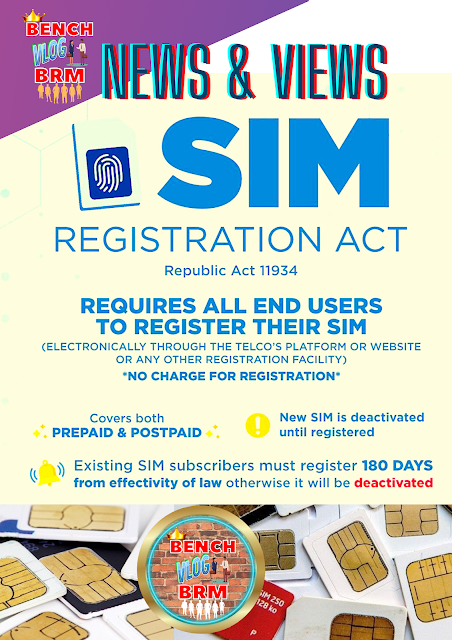As the COVID19 pandemic affect the real estate industry. How can we applies the default payments?The government have to support the default payments specially on the pandemic.
The Bayanihan to Heal as One Act, officially designated as Republic Act No. 11469, is a law in the Philippines that was enacted in March 2020 granting the
President additional authority to combat the
COVID-19 pandemic in the Philippines.
[1] The word "bayanihan" is a
Tagalog word for communal work.
 Defaulting Payments – Know Your Rights under Republic Act 6552 (Maceda Law)
Defaulting Payments – Know Your Rights under Republic Act 6552 (Maceda Law)
REPUBLIC ACT NO. 6552
AN ACT TO PROVIDE PROTECTION TO BUYER OF REAL ESTATE ON INSTALLMENT PAYMENTS
Knowing your rights as purchaser of a real estate property under the Maceda Law, will mean a huge difference. It can mean losing everything you have put in for your investment, or getting at least 50% of it back, when for some reason on your part, you cannot continue with your installment purchase. So in this post, we will discuss the most important points in the Maceda Law that are relevant to a distressed real estate buyer.
WHAT IS THE MACEDA LAW?
The Maceda Law, also known as The Realty Installment Buyer Act or Republic Act 6552 is the law that lays out a defaulting buyer’s rights in the Philippines with regards to his purchase of a real estate property, whether it’s a condominium unit or a house-and-lot unit in a subdivision development. This was initiated by lawmaker Ernesto Maceda and has taken into effect on August 26, 1972.
WHO IT APPLIES TO
Today, more and more people in the working class, especially OFW’s are
buying condominiums or house-and-lots in subdivision projects. But paying them in full in just one payment is just too much.
So practically, they opt to pay the equity by installment since developers’ or contractors’ installment equity payment schemes have become increasingly affordable. This is through stretching their equity payment or down payment stage to 20, 30, 40 months or sometimes even longer. Then they just take out a loan from their bank for the remaining balance since banks usually have
lower interest rates compared to in-house financing.
If you have taken advantage of this convenience in acquiring your property, everything is okay as long as you can keep up with your payments. But times are not always good. There are times when we face difficult situations and times when we just can’t make the payments anymore.
If you come into this situation, the Maceda Law was passed to help protect you. It established the rights of a qualified buyer who can’t continue with his payments anymore.
Under the Maceda Law, there are two qualification categories of buyers accorded protection. These buyers are:
Under Section 3 of Maceda Law, a buyer with at least 2 years of installments
Under Section 4 of Maceda Law, a buyer with less than 2 years of installments

RIGHTS OF A BUYER
Section 3
where the buyer has paid at least two years of installments, the buyer is entitled to the following rights in case he defaults in the payment of succeeding installments:
To pay, without additional interest, the unpaid installment due within the total grace period earned by him, which is hereby fixed at the rate of one month grace period for every one year of installment payments made; provided that this right shall be exercised by the buyer only once in every five years of the life of the contract and its extensions, if any.
If the contract is cancelled, the seller shall refund to the buyer the cash surrender value of the payments on the property equivalent to fifty percent of the total payments made… Down payments, deposits or options on the contract shall be included in the computation of the total number of installment payments made
Section 4
In case where less than two years of installments were paid, the seller shall give the buyer a grace period of not less than sixty days from the date the installment became due.
If the buyer fails to pay the installments due at the expiration of the grace period, the seller may cancel the contract after 30 days from the receipt by the buyer of the notice of cancellation or the demand for rescission of the contract by a notarial act.
In other words, Section 3 of Maceda Law indicates that the buyer has a right to a refund and grace periods as long as the buyer has paid at least two years. However, if there’s still less than 2 years of installment payments made, the buyer is only entitled to 60 days grace period as indicated in Section 4.
More importantly, there is a section in the Maceda Law that protects the buyers from the fine prints of contracts imposed by the contractors or developers. These fines prints are oftentimes neglected by the buyers to review during the contract signing.
Section 7 of the Maceda Law states that:
Any stipulation in any contract hereafter entered into contrary to the provisions of Sections 3,4,5, and 6 shall be null and void.
This section emphasizes the overriding power of the Maceda Law against the contract made by the developer and the buyer.
FREQUENTLY ASKED QUESTIONS
The following questions have been commonly asked by our readers:
Does it apply when I’ve been paying to the bank already?
A common practice today is for the developers to require only the equity to be paid in installments. This equity or also called “down payment”, varies from 10% to 50% (usually 20%), depending on the developer or the particular development project. The remaining balance after the equity, will be shouldered by some financing scheme.
This financing scheme may be provided by:
Banks
HDMF (formerly PAG-IBIG)
“In-house Financing”, by the developer themselves
or other financing institutions
If you opt to pay your remaining balance using bank financing, that means you’ll be taking a housing loan from the bank.
When you start paying to the bank, that means you have already taken out your housing loan from them. When you took a loan from your bank, you basically borrowed money and then you used that money to pay the developer in full. But this all happened in the background and the money did not go through your hands anymore. The bank gave it straight to the developer. And this is what commonly confuses people.
So now, your property has been fully paid as far as the developer/seller is concerned. In fact, as far as the law is concerned, your property has been fully paid already. But your loan from the bank is what’s outstanding. Your debt is now to the bank — the money you borrowed, to pay the developer.
So the answer to the question on whether this Maceda Law will still apply, is no, it will not apply anymore. That’s because the property is technically, already paid in full.
Does it apply when I’ve been paying to PAG-IBIG already?
Please refer to the answer to the preceding question above.
My developer/seller is very slow or is already late in delivering the property, will Maceda Law apply if I back out from the purchase?
You check first when the developer is supposed to deliver the property to you — their supposed “deadline”. You may check your contract. Or you may also call your nearest HLURB office and check with them when is the deadline given to the developer, as indicated in their License to Sell for the specific project where your property is in.
After determining that your developer is at fault, you may file a complaint for recision of your contract and for total refunds plus damages, as appropriate, at HLURB.
But as far as Maceda Law is concerned, it is not the appropriate law to rely on, now. Read carefully the provisions of
P.D. 957. This is what applies in cases like this.
My developer is for some reason, the one who’s at fault and I want to back out. Will Maceda Law apply?
The Maceda Law only assures 50% refund on all the payments you’ve made (or a little more as appropriate). If your developer is at fault, you should not ask for only 50% refund but for the entire amount you’ve already paid. You can even demand for damages as you deem fit.
If your developer is at fault, the provisions of
P.D. 957 may apply; and/or the appropriate provisions of
Book IV of the New Civil Code on Obligations and Contracts.
Below is the full text of the Maceda Law:
OTHER LAWS PROTECTING BUYERS OF REAL ESTATE IN THE PHILIPPINES
Further, there are other laws that protect the rights of condominium and subdivision property buyers such as
The Condominium Act of the Philippines or RA 4726 and The Subdivision and Condominium Buyers’ Protective Decree or
Presidential Decree 957 (more commonly known simply as PD 957).
Although both basically cover the same issue which is ‘refunds’, both laws cover different situations on how the refunds are supposed to be granted.
Depending on your situation, there are laws that protect you as a buyer. Know your rights and you don’t have to loose more money than you have to. You may not know it, but you might even be entitled to receive 100% full refund of all the payments you have made.
CALL OR TEXT OUR BUSINESS CONSULTANT OFFICERS.
Ask us today and we'll make your Day extra special!

_20231103_151714_0000.png)




.jpg)





































